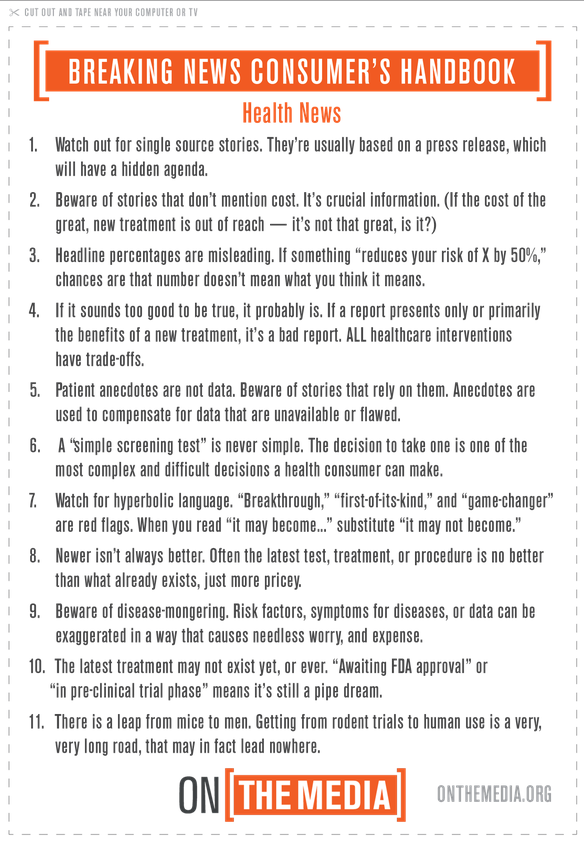How a scientific study/paper should look like

Seffell
Posts: 2,249 Member
Hey all,
There are always arguments in the forums about who read what where. Sometimes people insist they read some study about something and it turned out it is a magazine article of dubious reputation. This is fine as not everybody is supposed to know how to judge the sources.
So I thought I can help some of you to be able to make better judgements for yourself when searching for information online.
Here is an example of a scientific paper (or study as we call them).
ncbi.nlm.nih.gov/pmc/articles/PMC333231/pdf/jcinvest00645-0194.pdf
The topic is a random one. I got this from scholar.google.co.uk. I haven't read the article and have no idea what the information in it is and it is not important. What is important is how a proper study should look. They usually come in a .pdf file but sometimes they are in an HTML format too. If you look for papers in scholar.google you can also see the amount of times a given paper was cited. This is very important in science. The more times you get cited in other papers the more credible your work is considered. Not all papers are good studies. But if the paper was cited numerous times it is usually safe to consider it good.
You can see on the top of the paper who the authors are, to which organisation they belong and at the end of the paper is a long list of the references they made so that any claim of data can be tracked to the source and proof. Sometimes you can see on top where the paper was published.
Sometimes these papers are popularised for the general public in various journals. When this happens, they are properly referenced inside the text and/or at the end. So if you read something where the author makes big strange claims, do check if the author of whatever you're reading is making a reference to a proper paper like the one above.
Generally Wikipedia references almost all of its articles and is a good source as you can track where the information in it came from.
I hope this has been helpful to someone. It is good for us to be able to decide what to believe.
There are always arguments in the forums about who read what where. Sometimes people insist they read some study about something and it turned out it is a magazine article of dubious reputation. This is fine as not everybody is supposed to know how to judge the sources.
So I thought I can help some of you to be able to make better judgements for yourself when searching for information online.
Here is an example of a scientific paper (or study as we call them).
ncbi.nlm.nih.gov/pmc/articles/PMC333231/pdf/jcinvest00645-0194.pdf
The topic is a random one. I got this from scholar.google.co.uk. I haven't read the article and have no idea what the information in it is and it is not important. What is important is how a proper study should look. They usually come in a .pdf file but sometimes they are in an HTML format too. If you look for papers in scholar.google you can also see the amount of times a given paper was cited. This is very important in science. The more times you get cited in other papers the more credible your work is considered. Not all papers are good studies. But if the paper was cited numerous times it is usually safe to consider it good.
You can see on the top of the paper who the authors are, to which organisation they belong and at the end of the paper is a long list of the references they made so that any claim of data can be tracked to the source and proof. Sometimes you can see on top where the paper was published.
Sometimes these papers are popularised for the general public in various journals. When this happens, they are properly referenced inside the text and/or at the end. So if you read something where the author makes big strange claims, do check if the author of whatever you're reading is making a reference to a proper paper like the one above.
Generally Wikipedia references almost all of its articles and is a good source as you can track where the information in it came from.
I hope this has been helpful to someone. It is good for us to be able to decide what to believe.
0
Replies
-
Very helpful. Just need to understand what they're talking about now
 Thank you. 0
Thank you. 0 -
This is important. Sadly few people actually have access to journals for free (to them), I do where I work.
Often people don't understand what they read and the media makes leaps in the summary of the article. Furthermore, many people, scientists included, don't understand p values and what they really mean. One of the famous studies, power lines and cancer, is a great example of a correlation by coincidence.
Like everything, this can be summed up by an XKCD comic.
https://xkcd.com/882/
0 -
bathmatt12345 wrote: »This is important. Sadly few people actually have access to journals for free (to them), I do where I work.
Often people don't understand what they read and the media makes leaps in the summary of the article. Furthermore, many people, scientists included, don't understand p values and what they really mean. One of the famous studies, power lines and cancer, is a great example of a correlation by coincidence.
Like everything, this can be summed up by an XKCD comic.
https://xkcd.com/882/
Right, thankfully my universities library login is like a universal key to most journals. My fiance and I are also members of many professional organization, so we have receive hard copies of journals.0 -
The problem is that people only look at evidence that already supports their belief system. They don't actually care if it came from a credible source or not. They only care about whether or not it confirms what they already believe to be true.0
-
lisawinning4losing wrote: »The problem is that people only look at evidence that already supports their belief system. They don't actually care if it came from a credible source or not. They only care about whether or not it confirms what they already believe to be true.
Sadly that's true. There is an interesting book, you are now less dumb, it is pretty light weight but it talks about how evidence to the contrary of what you believe only makes you believe your point more. Kinda describes US politics.0 -
lisawinning4losing wrote: »The problem is that people only look at evidence that already supports their belief system. They don't actually care if it came from a credible source or not. They only care about whether or not it confirms what they already believe to be true.
I don't completely agree. There are many people too who just don't know how to judge the information which is presented to them. I only know because I'm with a scientific degree and I've been taught to do it in university. If it wasn't for that probably I would've been oblivious too.
I had a conversation about a given herb the other day with my mother. She started telling me what miracle properties she read the herb had. I asked her to show me where she read it. It was some ridiculous site. But she thought that because it was the first article in google to click on it was good. After I explained it to her she didn't think it was true anymore. So not everyone has preconceptions.0 -
I think this is the OP's point.. Right, to help with this
(whoops, just noticed you were the OP )
gebeziseva wrote: »I don't completely agree. There are many people too who just don't know how to judge the information which is presented to them.
)
gebeziseva wrote: »I don't completely agree. There are many people too who just don't know how to judge the information which is presented to them.
0 -
I teach a class in understanding research for humanities majors. I REALLY appreciate our need (as a society) for research/information literacy. I also really love this comic for expressing similar things: http://www.phdcomics.com/comics.php?n=11740
-
There was a good story on NPR on how the media contributes to misinformation.
http://www.onthemedia.org/story/breaking-news-consumers-handbook-health-news-edition/ 0
0 -
And not all scientific studies are valid. Many are disproved by others' research down the line. Some have flawed study design. Others may have reached erroneous conclusions due to misunderstanding of the research they based their research on. And on and on.0
-
While all studies are not correct, they should contain enough data to reproduce the results. It is part of the scientific process. Often a study will conclude that there is a 99% chance something is true. You do 100 studies one of these is bound to be luck.
While science has its problems, and I review my share of papers, it is the best thing we have going forward.geneticsteacher wrote: »And not all scientific studies are valid. Many are disproved by others' research down the line. Some have flawed study design. Others may have reached erroneous conclusions due to misunderstanding of the research they based their research on. And on and on.
0 -
I agree - it is the best we have. (Just reviewed one in which the author either misread or misunderstood the conclusion one of his referenced papers had reached, and stated the exact opposite.)0
This discussion has been closed.
Categories
- All Categories
- 1.4M Health, Wellness and Goals
- 398.1K Introduce Yourself
- 44.7K Getting Started
- 261K Health and Weight Loss
- 176.4K Food and Nutrition
- 47.7K Recipes
- 233K Fitness and Exercise
- 462 Sleep, Mindfulness and Overall Wellness
- 6.5K Goal: Maintaining Weight
- 8.7K Goal: Gaining Weight and Body Building
- 153.5K Motivation and Support
- 8.4K Challenges
- 1.4K Debate Club
- 96.5K Chit-Chat
- 2.6K Fun and Games
- 4.8K MyFitnessPal Information
- 12 News and Announcements
- 21 MyFitnessPal Academy
- 1.5K Feature Suggestions and Ideas
- 3.2K MyFitnessPal Tech Support Questions






